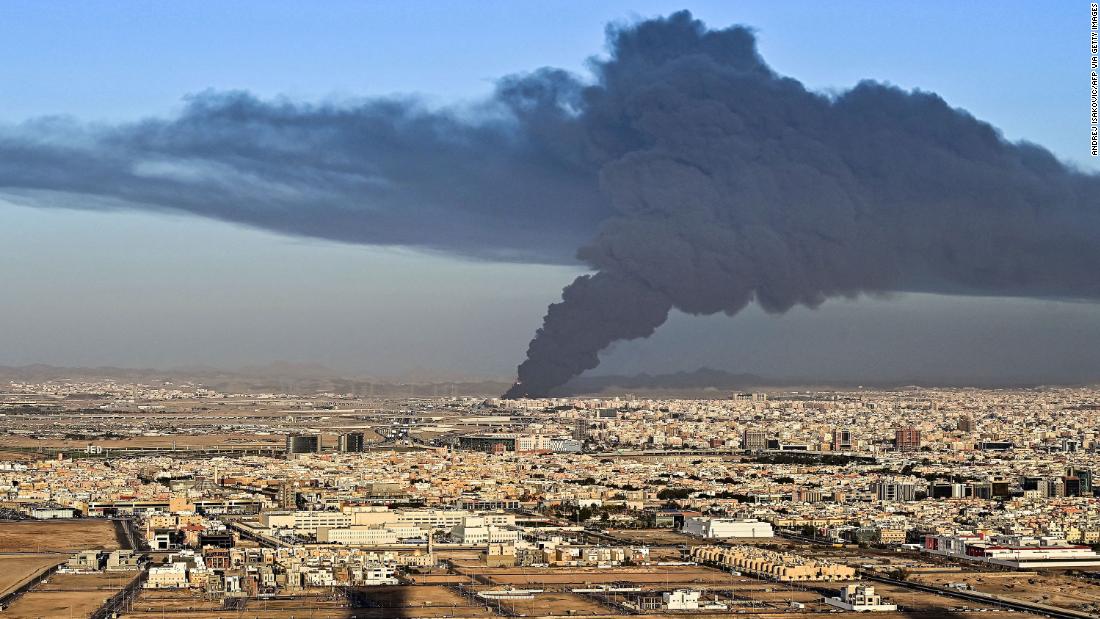“Following the widely reported incident that took place in Jeddah on Friday, there has been extensive discussion between all stakeholders, the Saudi government authorities and security agencies who have given full and detailed assurances that the event is secure,” the statement read.
“It has been agreed with all stakeholders to maintain a clear and open dialogue throughout the event and for the future.”
Friday’s explosion at the Aramco facility — an F1 sponsor — occurred about 20 miles (32 kilometers) from the track and smoke could be seen billowing over the city during Friday’s practice.
However, sources told CNN that drivers felt uneasy after the attack and many did not want to drive in the race.
The Grand Prix Drivers’ Association (GPDA) Chairman Alex Wurz issued a statement on Saturday saying Friday was “a difficult day” for the sport and a “stressful day” for drivers.
He added that “seeing the smoke from the incident” made it “difficult to remain a fully focused race driver.”
Wurz said there were long discussions and debates following the attack but “the outcome was a resolution” that the race would go forward with drivers’ participation.
“We therefore hope that the 2022 Saudi Arabian Grand Prix will be remembered as a good race rather than for the incident that took place yesterday,” Wurz added.
Drivers are set to take to the track for qualifying on Saturday before the race itself on Sunday.
No casualties in attack
The Houthis said they used a “large number” of drones to target the facility in Friday’s attack.
The Saudi-led coalition fighting the Houthis in Yemen said one ballistic missile and 10 bomb-laden drones launched from the southern border by the Iran-backed rebels were intercepted, according to Saudi state-run TV channel al-Ekhbariya. The statement did not mention an attack on Jeddah.
There have been no casualties so far in the attack, an official told CNN.
Saudi state media later reported that the Saudi-led Arab coalition launched air strikes on what it said were “threat sources in Sanaa and Hodeidah” in Yemen, following Friday’s attack.
The port city of Hodeidah is used to provide food and humanitarian aid for Yemenis. Fuel typically comes into the country’s north via the port, which is controlled by the Houthi rebels — but the Yemeni government, backed by Saudi warships, must give the vessels clearance to dock.
Saudi Arabia has justified a blockade of the port by accusing the Houthis of siphoning taxes from the fuel that comes into Hodeidah to fund its war effort, an allegation also made by the US and UN.
CNN’s Irene Nasser in Hong Kong, Talia Kayali and Hira Humayun in Atlanta, Nic Robertson, Eyad Kourdi, Amanda Davies and Mostafa Salem contributed to this report.







